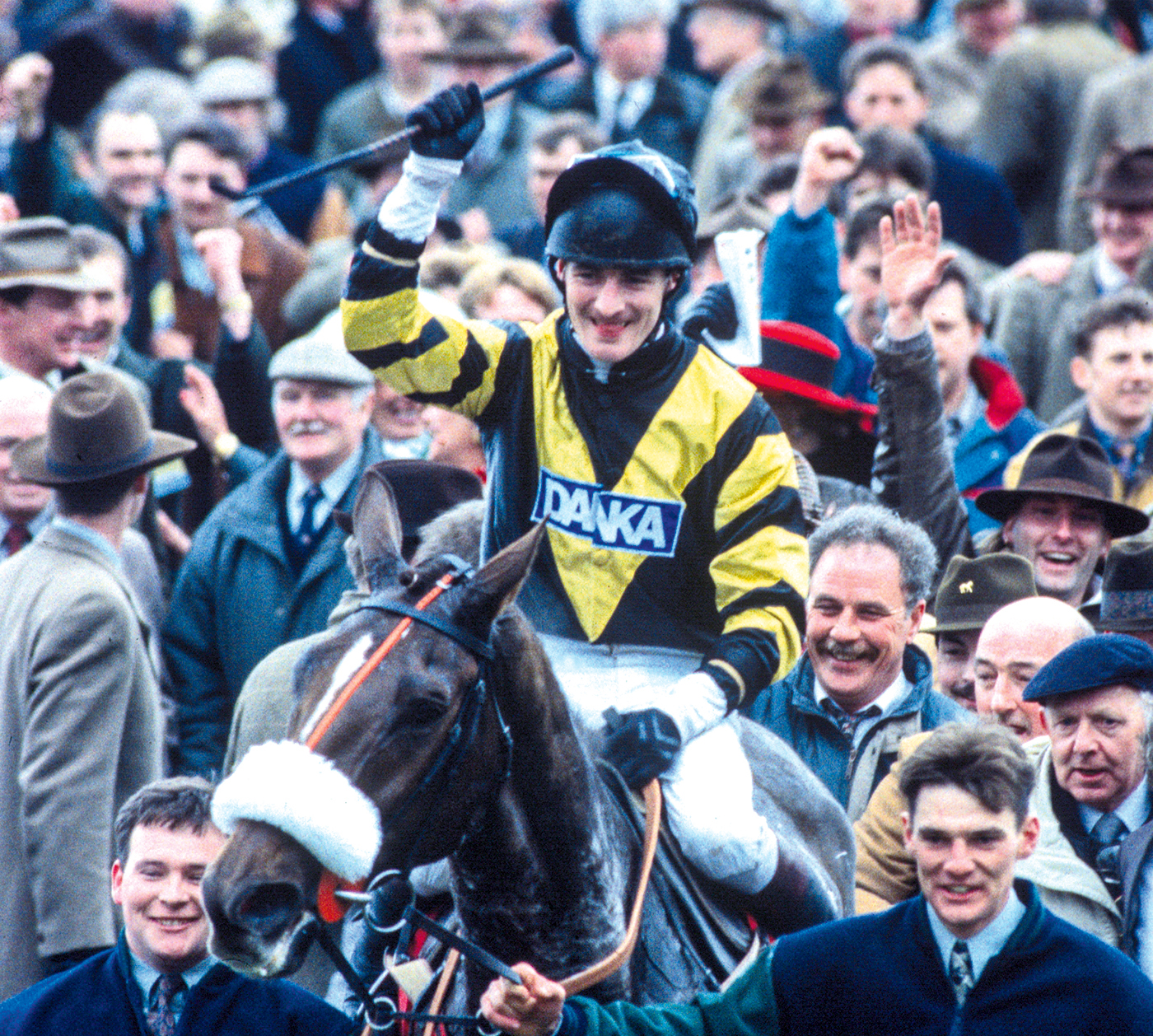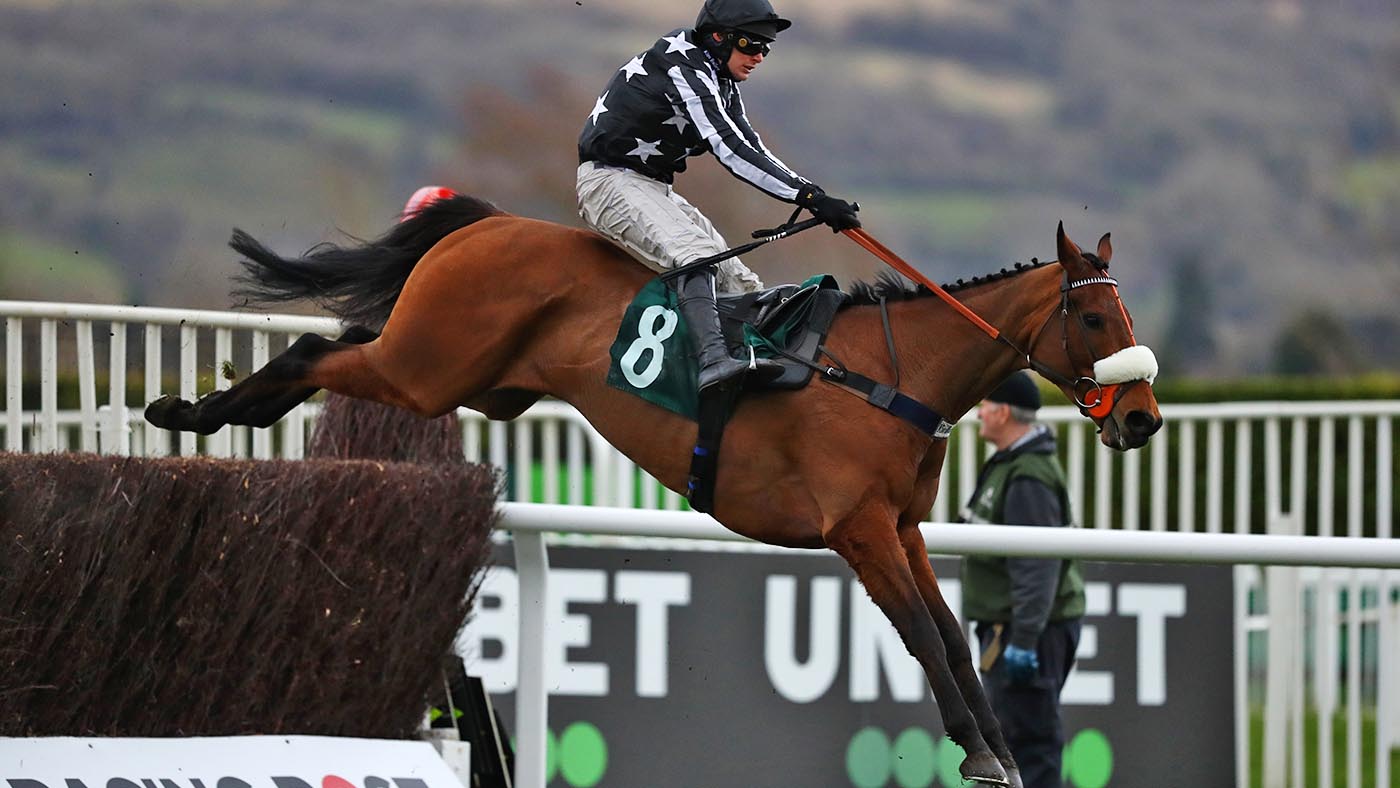Trainer Kim Bailey has shown the “survival instincts of a fox” since completing a Gold Cup/Champion Hurdle double in 1995, as Julian Muscat finds out
Trainers of a certain age express a common lament. They cannot fathom why owners flock to younger practitioners when they boast a wealth of experience. As their strings dwindle, lament descends to self-pity. Before they know it, they are ushered into enforced retirement as grumpy old men. Not Kim Bailey. The man now approaching his 68th birthday knows more than most about life’s snakes and ladders. It has taken him 20 years to reclaim the prominence he enjoyed when everything came easily. Although he’d fail the vet the moment he walked out of his box, he combines the survival instincts of a fox with the enthusiasm of a newborn foal.
It’s a trait many owners find endearing. Time and again Bailey has looked calamity in the eye. His nadir arrived in tandem with the new millennium, when he rose one morning to find his new all-weather gallop washed away by a torrent of rain. He turned what might have been an adverse metaphor into a second baptism. So much so that Bailey descends on the Cheltenham Festival with two fancied runners in races that matter. First Flow, the horse he describes as an oddball, has designs on the Champion Chase, while Imperial Aura is among the favourites for the Ryanair Chase.
Bailey has been there before, of course. In 1995, at the height of his first coming, he completed the Cheltenham Gold Cup/Champion Hurdle double with Master Oats and Alderbrook respectively. He didn’t win another Grade One race until First Flow slaked the drought at Ascot in January, which opened the door to some gentle ribbing.
Kim Bailey responds with interest. “It’s people like you who never allow me to forget it,” he says of his 26 years in the wilderness. “Every time I had a runner in a Grade One race, TV pundits reminded me I hadn’t won one since before World War II.”
First Flow dismantled Politologue, winner of last year’s Champion Chase, with a balletic round of jumping at Ascot. His victory prompted Bailey’s wife, Clare, to decant a bottle of her husband’s favourite claret as he made his way home. So much for “dry” January, although Bailey repented by extending his personal drought into the start of February.
He didn’t drink alone that night. Harry, his eldest son by his first marriage, hosted a party in Sydney at which everyone watched the race at 2.35am local time.
“We spoke on the phone afterwards but neither of us could understand what the other was saying,” Bailey relates.
Those lighter moments aside, training jumpers has become a deadly serious business. Gone are the days when a seasonal debutant would turn up at the races straight from summer pasture. The game resounds to the sort of steely professionalism Bailey adopted in the 1990s, and which enabled him to make such an impact from his base in Lambourn. It seemed only a matter of time before he reached the summit until the wheels fell off towards the end of the decade.
On selling up in Lambourn, Bailey bought land in Northamptonshire, from where he vowed to recast himself. Then his gallop was washed away soon after he installed it, while alternative plans he’d made to work his horses elsewhere were usurped by the outbreak of foot-and-mouth disease. Having pumped north of £1m into the site, he trained just 12 winners over two years to 2006.
“That place was my pride and joy,” Kim Bailey reflects. “Plenty of people were telling me to stop, but I was determined to prove them wrong. I found it hard to admit I’d failed. It was only after we sold up that I found out we’d built on an old graveyard, which might explain why several strange things happened there.”

Master Oats
Bailey relocated to Thorndale Farm, some eight miles from Cheltenham, where he rented 1,000 acres from the Vestey family. Two large cowsheds were converted into stabling for 70 horses. It was to prove the springboard he craved, although it has taken 15 years to propel himself back into the headlines. All the while, his competitive fires never dimmed.
It’s a mark of the man that Bailey is reviving former glories in what has become a cut-throat profession, one defined these days by the perception that £100,000 is no longer a jaw-dropping price for a young horse. But there are still bargains to be had. First Flow was bought by event rider Karen Fanshawe for €4,500 (£4,000) as an unbroken three-year-old.
“Karen rang me to say she had a half-decent type for sale,” Kim Bailey relates. “David [Bass] came back with positive vibes when he rode it in Lambourn, so we sat outside in the rain and did a deal. I then rang Tony Solomons to tell him I’d found him a new horse.”
Solomons’ ownership of First Flow is apposite; he sent Bailey a horse in 1979 and has stayed with him through thick and thin. Given their long association, winning the Champion Chase would represent something of a crowning glory. “It would mean the world to both of us,” Bailey says.
Imperial Aura cost €26,000 (£22,500) as an unbroken three-year-old. Now eight, he won the novices’ handicap chase at last year’s Festival. As disappointing as it was, Bailey is unperturbed by the gelding’s most recent run, when he unseated Bass at the second fence at Kempton in January.
“He had a short break after that but has since worked and schooled well,” Bailey says of Imperial Aura. “There will be no excuses. Cheltenham has been his target since the start of the season.”

Imperial Aura
It has been a difficult year at Thorndale Farm, where Bailey’s regular interaction with owners has been scuppered by the pandemic.
“We’ve worked far harder to involve owners,” he says. “For them, it’s been like owning a holiday home and not being able to use it. And the racecourse experience has been sterile. Celebrating a winner with a bottle of water is not my style.”
Such tribulations will pale into insignificance should Bailey return from Cheltenham with a championship trophy under his arm. The three Festival winners he has saddled since his 1995 coronation were all gained in handicaps. They were obviously well received, although taking on the best horses at level weights represents a more daunting prospect.
“After First Flow won at Ascot, I received 500 texts and 400 emails,” Bailey says. “It makes you realise how important these big races are. It doesn’t hit home when you are in an empty stand on a deserted racecourse. I’m already sensing it will mean more to me to win one at Cheltenham now. I didn’t appreciate what happened in 1995. It came too easily.”
Nothing in the aftermath came easily to a man who espouses the virtue that failure is the spur to success. In the event of victory, Kim Bailey’s engaging demeanour will also make it a pleasure for others to celebrate with him.
Also published in H&H 11 March 2021
You may also be interested in…

Get the inside scoop: three virtual Cheltenham Festival preview nights not to be missed
What’s the perfect aperitif to the Cheltenham Festival itself? A virtual Cheltenham Festival preview night, of course! Take a look

Kim Bailey: the Cheltenham Festival won’t be the same without owners *H&H Plus*
H&H’s racing columnist ponders the depressing vision of a Cheltenham Festival without owners at the racecourse

Sandy Thomson: the former rugby player turned trainer reversing racehorses’ declines *H&H Plus*

How to watch Cheltenham Festival on TV: your armchair viewing guide

